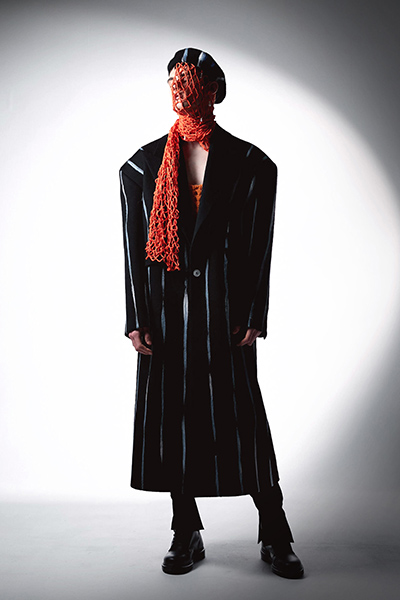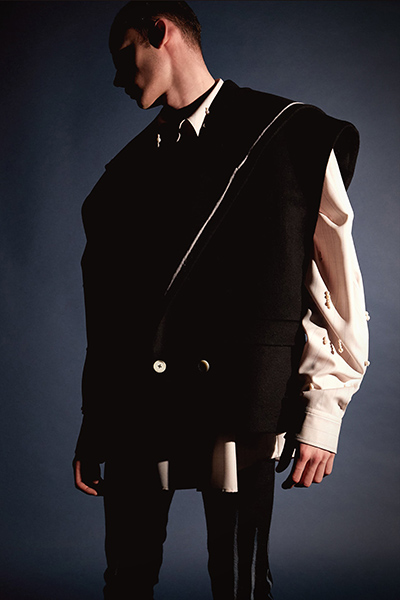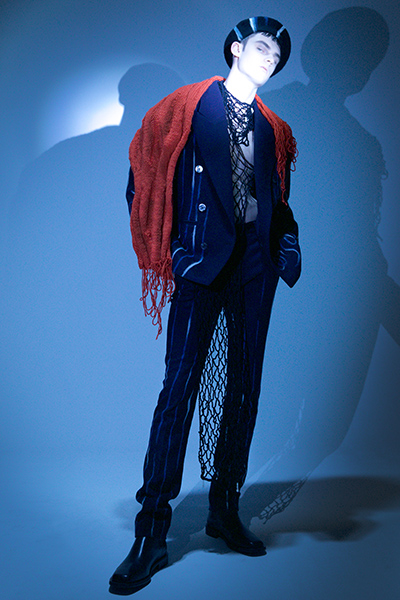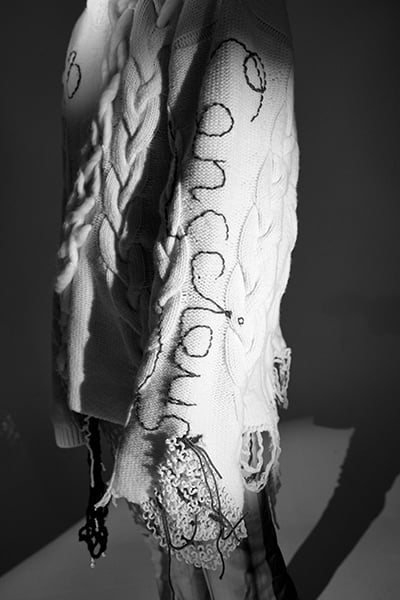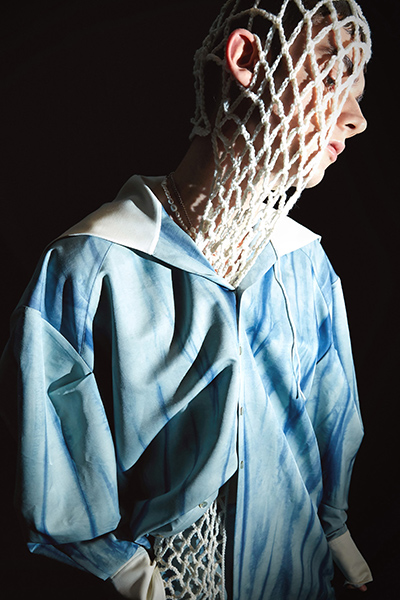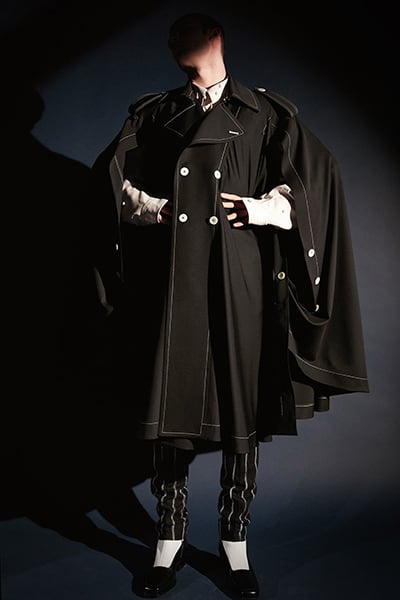Committed to highlighting issues which extend beyond the realm of fashion, Blindness designers Kyu-Yong Shin and Ji-Sun Park draw attention to social issues, communicating these through the clothes they make using a mix of eco-friendly and traditional techniques to express a modern character.
For its International Woolmark Prize collection, Blindness draws inspiration from an issue they believe can no longer be ignored: pollution. Dubbed the plastic paradox, Blindness makes us consider the notion that plastic is eternity, yet plastic is disposable.
“The pollution level has reached its limit,” explains the design duo behind the label. “It cannot just stay in theory and actions are required. The fashion industry has responsibilities towards pollution; we thought it was important to act and change this problem, therefore we decided our theme would be conscious of environmental pollution.”
Lookbook
Military-like silhouettes and the genderless style of Blindness was expressed with inspiration from the navy who guard the sea, and so their collection tells the story of the navy that patrols over the marine environment.
“Marine pollution is a big part that is affected by the fashion industry that we should watch over, be on guard and be conscious about this issue. Plastic is disposable and at the same time permanent. It was really contradictory, and we wanted to show the pollution and damage caused intuitively.”
Fishing net structures have been reimagined in wool in a satirical look at one of the ocean’s biggest polluters. Plastic has been eliminated wherever possible, with buttons sourced from natural resources.

“Through our collection, we would like to spread the message that we should work on the environmental problem. The goal of this season is to awaken consumers and wanting them to start to be conscious and concerned about the environment.”
The image of a breaking wave, military silhouette and Korean traditional dyeing techniques were mixed in the collection. Straight-lined patterns made with dyed wool over the wool fabric makes a strong and cold image, using different colours of dyed wool fibres to portray the deepness and wave on the surface of the ocean.
Using the process of natural fermentation, Blindness was able to take the indigo dyeing pigment from the plant and successfully dye the wool fibre.
“There is no chemical used in the whole process so it is very eco-friendly and also uses significantly less water than traditional dye stuffs. We found local artisans Kindigo in Korea and worked with them for the natural dyeing process.”
“There is no chemical used in the whole process so it is very eco-friendly and also uses significantly less water than traditional dye stuffs. We found local artisans Kindigo in Korea and worked with them for the natural dyeing process.”
Working with local, skilled manufacturers and factories, Blindness was able to build a relationship with its supply chain which can then be communicated to its consumers.
“Through the International Woolmark Prize, we were able to think deeply about the feasibility of sustainable fashion, co-working with manufacturers to ensure the sustainability of both the materials and processes.”
